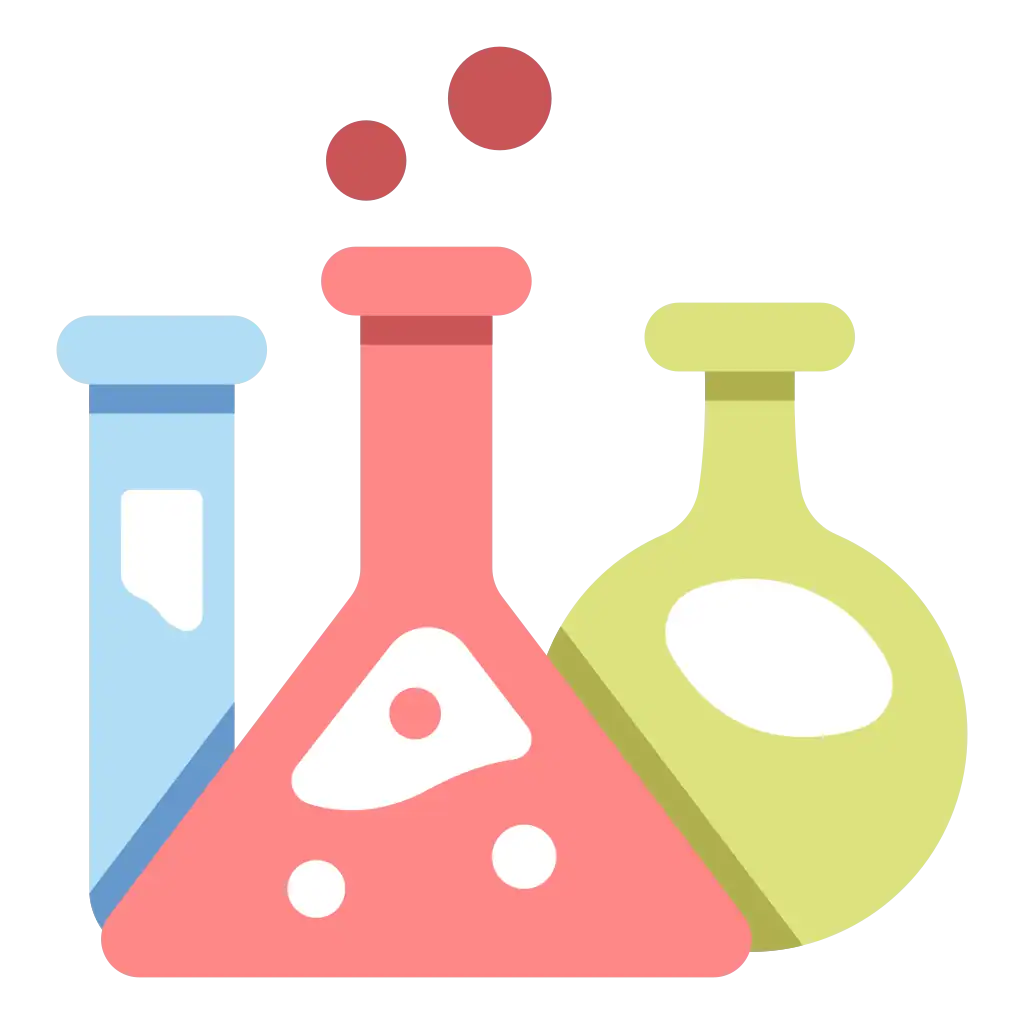What is E1420 Food Additive
E1420, known as Distarch Phosphate, is a type of modified starch classified under the E‑number system used for approved food additives. It is created by taking natural starches—commonly from corn, potato, or wheat—and chemically treating them with phosphates. This modification changes the starch’s physical and functional properties, making it more resistant to heat, acid, and mechanical processing.
Unlike native starch, E1420 maintains its thickening and stabilising qualities even during intense cooking or prolonged storage. This makes it particularly useful in modern food manufacturing, where products often undergo high temperatures, freezing, or long shelf-life requirements.
Food producers use E1420 because it helps to:
- Improve texture and mouthfeel
- Prevent separation in sauces, soups, and dressings
- Maintain consistency during pasteurisation, freezing, and reheating
By enhancing stability and performance, E1420 allows manufacturers to deliver products that look and taste consistent from the day they are made until the end of their shelf life.
Common Uses of E1420 in the Food Industry

E1420, or distarch phosphate, is widely used across different areas of food production in the UK. Its main job is to act as a stabiliser, thickener, and texture enhancer. These functions help food keep its intended feel and consistency, even after freezing, heating, or sitting on the shelf for a while.
You’ll often find E1420 in:
- Bakery products – keeps fillings smooth and prevents sponge from going stodgy.
- Sauces and gravies – stops separation and keeps the texture nice and even.
- Processed meats – helps bind moisture and keep meat products from drying out.
- Dairy-based products like yoghurts, custards or cream desserts – improves creaminess and mouthfeel.
For manufacturers, it’s a reliable way to control consistency, improve shelf life, and make production more efficient. For consumers, it means food looks and tastes as it should for longer, with fewer issues like watery sauces or clumpy textures.
Regulatory Status and Safety of E1420
E1420, or distarch phosphate, is a modified starch that’s widely recognised as safe by major food authorities. It’s approved in the UK, EU, and internationally under the E‑number system for food additives. The European Food Safety Authority (EFSA), US Food and Drug Administration (FDA), and Codex Alimentarius all allow its use in a broad range of processed foods.
There’s currently no set Acceptable Daily Intake (ADI) for E1420, as scientific reviews have not found safety concerns at the levels typically used in food. It’s generally well-tolerated, though very high intakes of modified starches may lead to mild digestive discomfort in sensitive individuals.
Studies show no evidence of allergenicity for the general population, but people with specific starch sensitivities or coeliac disease should check the source — most commercial E1420 is made from maize, potato, or tapioca, and gluten-free versions are widely available.
In terms of clean label initiatives, E1420 sometimes sparks consumer debate. While it’s safe, it is classed as a processed additive, so some shoppers prefer products listing “modified starch” rather than its E‑number. For UK manufacturers, transparent labelling and clear ingredient sourcing can help maintain trust, especially among health-conscious buyers.
Benefits of E1420 Food Additive
E1420, also known as distarch phosphate, offers clear advantages in both food quality and production efficiency.
Enhances Texture and Shelf Life
- Keeps sauces smooth and lump-free.
- Maintains structure in baked goods, even after freezing and thawing.
- Reduces separation in dressings, soups, and dairy products.
- Helps products stay fresh for longer by slowing staling or water loss.
Improves Product Consistency
- Gives a uniform thickness to liquids like gravies and custards.
- Stabilises processed meats, preventing moisture leakage.
- Works well under heat, cold, and mechanical stress, so quality stays the same from factory to table.
Economic and Manufacturing Efficiency
| Benefit | Why It Matters for Manufacturers |
|---|---|
| Reliable performance | Fewer production issues, less waste |
| Versatile use | One ingredient works across different recipes |
| Cost-effective | Lower risk of spoilage or texture failure |
| Storage friendly | Long shelf life reduces ingredient turnover |
For UK food makers, E1420 modified starch can mean fewer recalls, better product appearance, and a smoother eating experience for consumers — all while keeping production costs in check.
Potential Risks and Controversies
E1420 (distarch phosphate) is generally considered safe by food safety authorities, but like most food additives, it can raise a few concerns for some people. The most common issues revolve around misconceptions rather than proven health risks. For example, some assume all modified starches are “artificial” or “chemical-heavy”, when in reality E1420 is simply starch that has been treated to improve its stability and performance in cooking and processing.
Allergies and Sensitivities:
- E1420 is usually well tolerated, but as it can be made from corn, potato, or wheat, there is a small chance it can carry trace allergens.
- For those with coeliac disease or gluten sensitivity, wheat-derived E1420 may not be suitable unless it’s specifically certified gluten-free.
- Some people with highly sensitive digestion may experience mild bloating or loose stools if they consume a lot of modified starch in one go, but this isn’t typical.
What the Science Says:
- The European Food Safety Authority (EFSA) and UK Food Standards Agency have found no link between E1420 and serious health issues when eaten within normal amounts.
- It is not linked to hyperactivity in children or other common additive-related worries.
- Current research shows it passes through the digestive system much like regular starch, with no build-up in the body.
In short, while there are a few dietary considerations for certain groups, E1420 is not seen as a risky additive, and concerns often stem from misunderstanding what “modified starch” actually means.
E1420 Compared to Other Starch Based Additives
E1420, also called distarch phosphate, is a modified starch that behaves differently from both native starches and other E-number starches such as E1404 (oxidised starch) and E1410 (monostarch phosphate). The changes made during processing give it unique performance in food manufacturing.
Key Differences at a Glance
| Starch Type | Main Feature | Heat Resistance | Stability in Acid | Freeze-Thaw Stability | Common Uses |
|---|---|---|---|---|---|
| Native starch | Unmodified, basic starch from potato, wheat, maize | Low | Low | Poor | Bakery, soups |
| E1404 Oxidised starch | Smooth texture, lower viscosity | Medium | Medium | Poor | Sauces, noodles |
| E1410 Monostarch phosphate | Slightly better stability than native starch | Medium | Medium | Medium | Dressings, desserts |
| E1420 Distarch phosphate | Cross-linked for improved stability and thickness | High | High | Good | Ready meals, sauces, dairy, processed meats |
Why Manufacturers Use E1420
Food producers in the UK often choose E1420 over other starches because:
- High stability — keeps sauces thick even after reheating or freezing.
- Good texture retention — resists breakdown in acidic foods like salad dressings or tomato-based sauces.
- Shelf life support — slows separation of liquids in ready-made products.
- Versatility — works well in both savoury and sweet recipes.
While native starch is fine for simple products, E1420 offers reliability for foods that need heat, acid and freeze-thaw stability – key for chilled, frozen, and long shelf life goods on UK supermarket shelves.
How Taichy Food Uses E1420
At Taichy Food, E1420 (distarch phosphate) is only used where it adds real value to the product. We follow strict quality standards for all food additives, making sure that every batch meets both UK and international safety requirements. Our suppliers are vetted carefully, and we keep full traceability records so we know exactly where each ingredient comes from.
We’re open about our ingredient choices. If E1420 is used, you’ll see it clearly listed on our labels, either by its name modified starch (E1420) or under the E‑number system, so customers can make an informed decision.
E1420 helps us create foods with better texture, stability and shelf life, without compromising on taste. Our product development team tests it thoroughly to make sure it works effectively in each recipe. We also ensure it’s suitable for specific dietary needs, including vegan and halal requirements when relevant.
By applying these measures, we use E1420 in a controlled, purposeful way – improving product quality while keeping our formulations safe, consistent and transparent.
Frequently Asked Questions about E1420 Food Additive
Is E1420 natural or synthetic
E1420, or Distarch Phosphate, is classed as a modified starch. It’s originally sourced from natural starches such as corn, potato or wheat, but it’s chemically treated to improve its performance in food production. So, it starts out natural, but the modification process means it’s not the same as plain, native starch.
Can E1420 cause allergic reactions
Allergic reactions to E1420 are rare. In most cases, it’s well tolerated. However, if it’s derived from wheat, there’s a risk for people with gluten intolerance or coeliac disease unless it’s certified gluten-free. Anyone with known starch sensitivities should check the source before consuming.
Is E1420 suitable for all dietary requirements
- Vegan – Yes, E1420 is plant-based and generally accepted as vegan-friendly.
- Vegetarian – Suitable for vegetarians.
- Halal/Kosher – Can be suitable, but always check certification on the product.
- Gluten-free – Often gluten-free when made from corn or potato starch, but if wheat is used, it must be clearly labelled.
How to identify E1420 on food labels
You’ll find E1420 listed as:
- E1420
- Distarch Phosphate
- Modified Starch (E1420)


